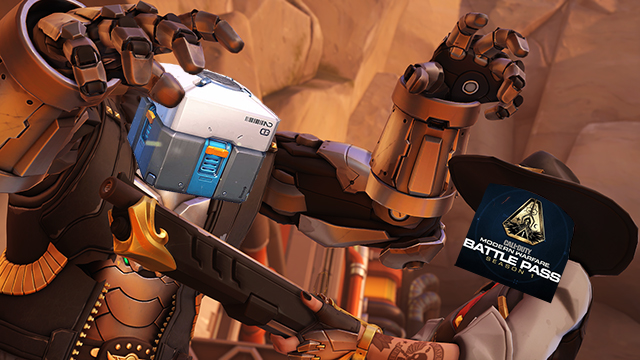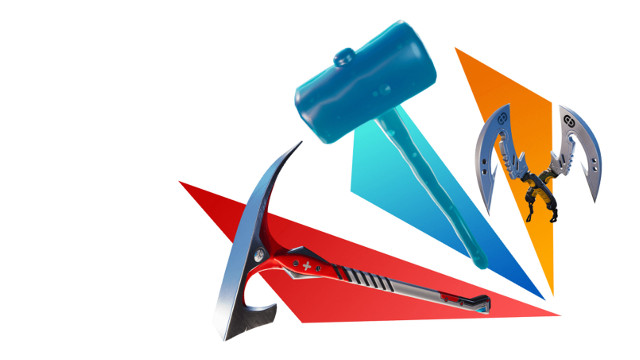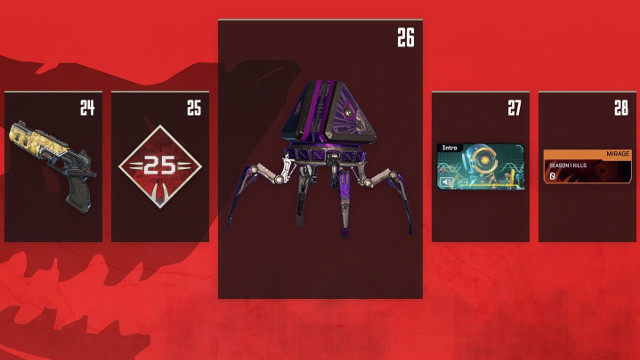Loot boxes are becoming an increasingly contentious issue in the gaming world. Not only do players generally hate them but some also view them as a form of gambling. Legislation and regulation that controls or outright bans the microtransaction system of loot boxes is constantly popping up, giving these monetization schemes a legal battle to fight along with the reputation battle they face every single day. These troubles showcase why battle passes are very likely to replace loot boxes entirely in the coming years.
What are battle passes and loot boxes?
There are two different microtransaction styles used in many games these days: loot boxes and battle passes. Each have their strengths and weaknesses for both publishers and consumers, and some games make use of the two systems. Many games award loot boxes for progressing in a leveling system, completing tasks, an outright purchase, or all three. Typically, loot boxes will have items of varying rarity within, and some loot boxes are only available seasonally.
ALSO: Why aren’t loot boxes considered gambling?
Battle passes have much in common with loot boxes; they are filled with cosmetic loot which can be earned via leveling, completing tasks, or through an outright purchase. Both systems also allow you to speed up your acquisition of items by spending more money. With loot boxes, you have to buy more boxes and cross your fingers. Battle passes, conversely, sometimes allow you to simply purchase additional levels in sequence, skipping past progression that you would have to earn through gameplay in exchange for some of your real-world dollars.
There’s one key difference, though — you always know what you’re getting with a battle pass. You can plainly see what gun skin you’ll get at level 22. But in a loot box system, whether or not you get that gun skin is entirely up to luck. And while luck may give players a rush, it’s not sustainable because of how it has been perverted through loot boxes.
Why are loot boxes so popular in games?
The popularity of loot boxes comes down to one issue: money. One study predicts that the microtransaction practice will be adding $50 billion to gaming industry revenues in 2020. That might sound absurd, but we already have very real numbers to back this up. In 2018, loot boxes (in concert with skin gambling) contributed towards making gaming companies over $30 billion around the world. That’s on top of the base game, DLC purchases, and other paid microtransactions.
While some might not like loot boxes — especially when they don’t get the item they want — it’s difficult to deny their popularity considering the above. Clearly, they’re selling more and more every year. Unfortunately, the developers and publishers may well be playing with fire.
That’s not to say battle passes don’t bring in money, too. Much (if not most) of Fortnite’s success is likely due to its battle pass sales. As that study notes, the rewards along with the feeling of exclusivity (and the occasional time-limited purchase) are practically printing money for Epic Games. Hopefully, publishers can see that battle passes can also earn cash and make the switch.
The trouble with loot boxes
The question surrounding gambling and loot boxes is sure to be one of the prime reasons battle passes will be their less controversial successor. One can make the argument that loot boxes are indeed gambling, and sometimes the law isn’t exactly clear on the matter. The problem for game developers and publishers is that many governments around the world are taking a very critical look at this particular microtransaction system.
It’s certainly a complex question that can’t be easily answered. For example, some countries only consider something gambling if you win money. Others only require that you win an item “of value” — do cosmetic skins have value? What about cosmetic skins that bind to your account versus those that don’t? What about cosmetic skins that you can sell via a third party site that is entirely unaffiliated with the game developer or publisher?
Politicians, scholars, and scientists will continue to debate the issue for years to come. Loot boxes will probably be banned in more countries and left alone in others. Still, gaming companies who were relying on the extra revenue from these microtransaction systems are going to have to change things up, if only to compensate for the places where loot boxes are banned or are about to be banned. Battle passes are not banned anywhere.
Replacing loot boxes with battle passes is the smart move
From an outsider’s perspective, the clear move is to phase out loot boxes for battle passes for several reasons. Loot boxes may or may not be considered gambling depending on local laws, but they are being investigated thoroughly anyway and generating a lot of bad press. And the countries that do ban loot boxes will generate reduced revenue for game developers. Others that don’t ban loot boxes may face pressure to change their laws since they’re being banned in other countries. Battle passes don’t suffer any of these legal issues.
The key issue with loot boxes is the perception that they are gambling. Regardless of the legal definition of gambling, they are nonetheless perceived to be gambling by some, and that can be a bad look — especially when it triggers government investigation.
Battle passes, in comparison, suffer from none of the issues that raise legal questions about loot boxes. You pay a one-time, upfront cost to get access to a battle pass and you often know which rewards you will be getting in advance. These come with visible bars that make it easy to see how long it would take you to get a particular reward. And if you want to speed things up, you can buy additional battle pass levels — and you know what you are getting.
Losing the randomness of loot boxes is the biggest consumer argument for going with battle passes. That’s the element that seems to bring gambling into the conversation. While that randomization may not strike up the same dopamine hit, battle passes are perceived as more fair and it’s easier to please people if it doesn’t appear as though you’re trying to scam them out of money.
Fortnite has survived on purchases of specific items from the shop and a battle pass system for quite some time now. It’s safe to say that battle passes replacing loot boxes can work. The sequel to Overwatch — the game that helped popularize loot boxes — might not even have loot boxes as Game Director Jeff Kaplan stated that Blizzard is “exploring all sorts of different business model options for Overwatch 2” and the team hasn’t “landed on a particular one yet.” If Overwatch can possibly move away from loot boxes and if Fortnite can avoid them altogether, then hopefully other developers can get with the times and pass on old monetization tactics and embrace the battle pass system.











